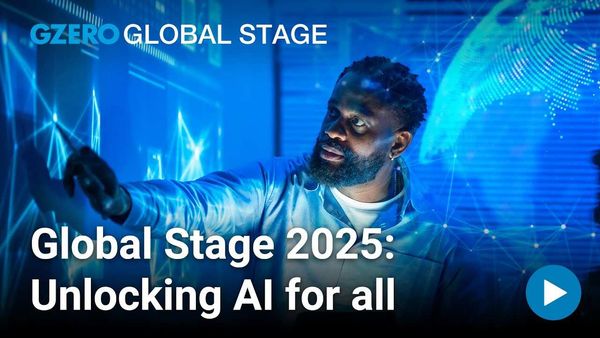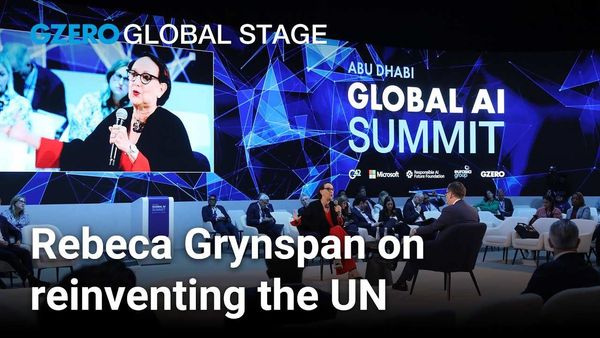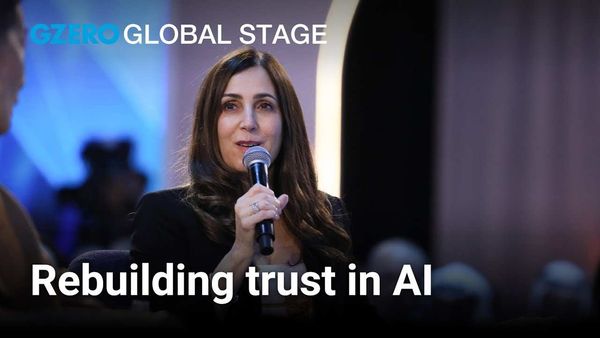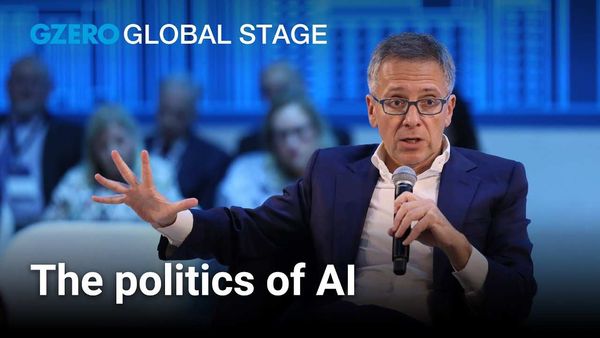Disinformation is running rampant in today’s world. The internet, social media, and AI — combined with declining trust in major institutions — have created an ecosystem ripe for exploitation by nefarious actors aiming to spread false and hateful narratives. Meanwhile, governments worldwide are struggling to get big tech companies to take substantive steps to combat disinformation. And at the global level, the UN’s priorities are also being hit hard by these trends.
“We can't bring about and generate stability in fragile environments if populations are turning against our peacekeepers as a result of lies being spread against them online. We can't make progress on climate change if people are being led to believe first of all, that maybe it doesn't even exist, or that it's not as bad as they thought, or that it's actually too late and there's nothing that they can do about it,” Melissa Fleming, the UN's Under-Secretary-General for Global Communications, told GZERO in a conversation at the SDG Media Zone during the 79th UN General Assembly.
“The UN alone cannot tackle these problems without civil society, without people. And the people are what drives political agendas. So it's really important for us to work on our information ecosystems together,” Fleming added.
Though Fleming said that many in the UN are excited by AI's myriad potential benefits, she also emphasized the serious problems it’s already posing in terms of accelerating the spread of disinformation—particularly via deepfakes.
“We've spent a lot of time also trying to educate the public on how to spot misinformation and disinformation and how to tell if a photo is real or if it is fake. In the AI information age, that's going to become nearly impossible,” Fleming said.
“So we're calling on AI actors to really create safety by design, and don't leave it only to the users to be able to try to figure out how to navigate this. They are designing these instruments, and they can be part of the solution,” she added.


















